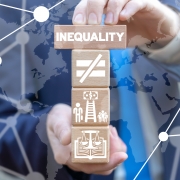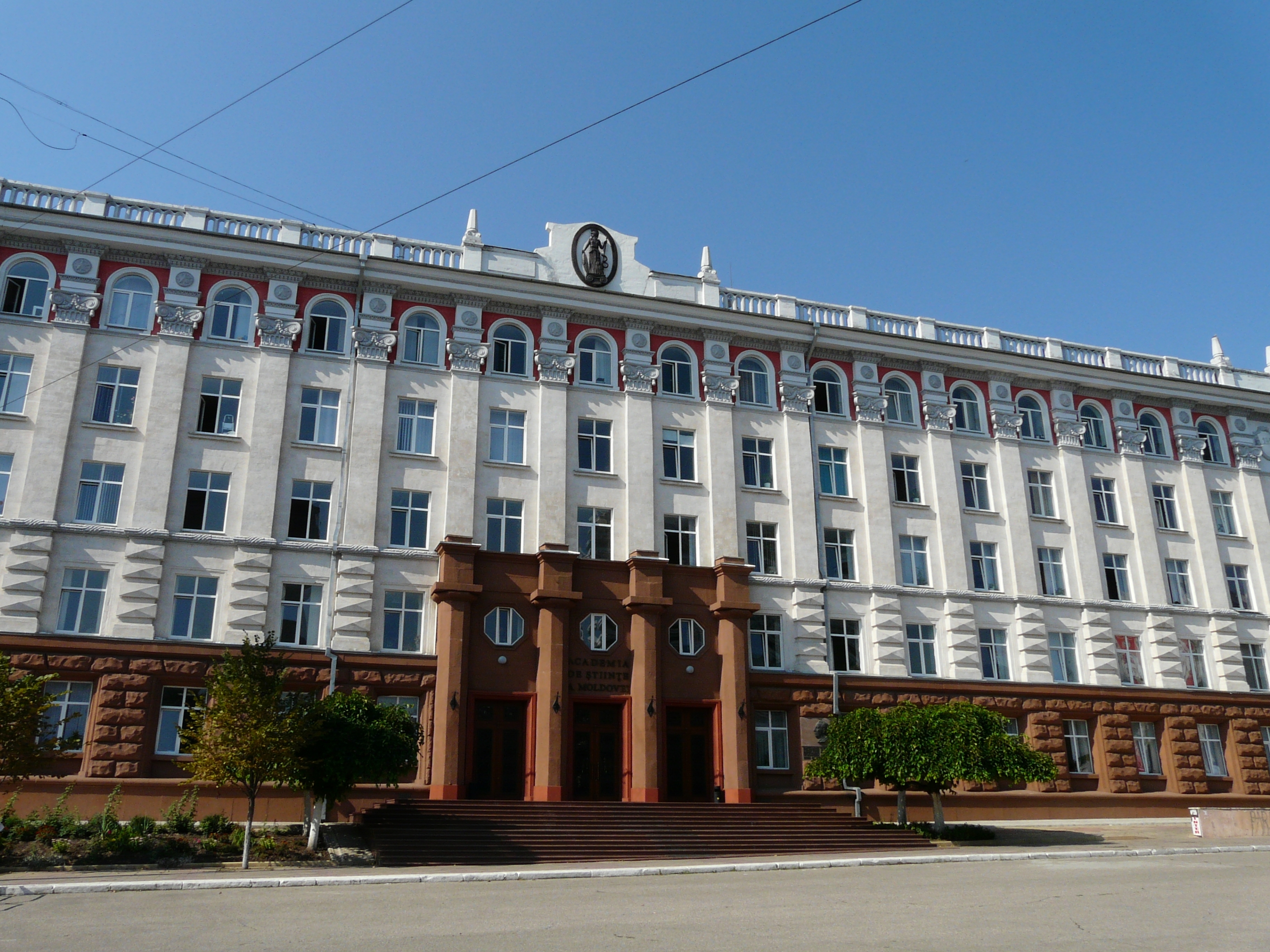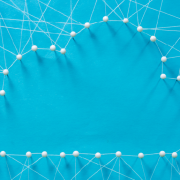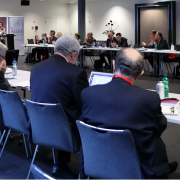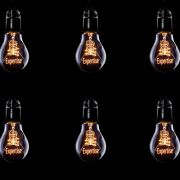Archive for month: March, 2020
European Open Science Cloud needs improved legal and technical foundations to go global
ALLEA welcomes in a new statement the progress of the European Open Science Cloud (EOSC) and highlights its great potential to accelerate the transition towards open science. The document presents a set of legal instruments and technical considerations which aim to reinforce the sustainability of EOSC.
Data are vital resources for research and technological development and the lifeblood of artificial intelligence. Deploying EOSC, an open platform of research tools, infrastructures and procedures for data and research sharing across borders and scientific disciplines, can significantly foster knowledge exchange and facilitate the quicker uptake of scientifically informed policies to tackle major societal challenges like climate change or health threats.
Such an ambitious and wide-ranging endeavour can only succeed with appropriate legal and technical instruments which ensure an encouraging research environment for individual researchers and high-risk research investments in today’s global and competitive world.
“The deployment of the European Open Science Cloud is clearly needed for accelerating the sharing of data and research results within the scientific community in Europe and beyond. Together with other measures favouring open science, this will help to find fact-based responses to major societal challenges such as fighting the spread of coronavirus. Interoperability with other data clouds should be ensured, and, where necessary, reciprocity of access or other conditions could be required to promote the progress of science while supporting investments in research”, says Alain Strowel, Chair of the Permanent Working Group Intellectual Property Rights.
IPR and strategic considerations
ALLEA was amongst the first endorsers of the EOSC declaration in 2017 and since then has closely monitored deliberations and developments regarding its implementation. This statement points to still unaddressed questions especially in the area of Intellectual Property Rights (IPRs). It also advocates that the Rules of Participation (RoP) should further define access conditions in line with the EOSC principles to make the cloud “as open as possible and as closed as necessary”.
Those regulations should set proportionate limitations in “duly justified cases” of IPR concerns, national security, and alike. In particular, the statement notes that the current RoP only consider ‘copyright’ as a category of IPRs and disregards patents, the most important tool for protecting research inventions, and for incentivising and securing high-risk investments in research and development, both in the public and private sectors.
ALLEA’s statement presents necessary considerations to establish a solid legal and technical framework for an effective and sustainable open science cloud, including among others:
- An overall legal design that ensures reciprocity of access for participating researchers submitting data according to the EOSC RoP and to EOSC compliant users of data stored elsewhere.
- Interoperability with other regional data clouds which also promote interoperability and development of common global standards enabling scholarship and science to be shared as public goods for the benefit of all.
- Staggered security regulations as regards data and processes, with due consideration of all relevant aspects (i.e. machines, tools, people), while different requirements, depending on the security level, must also be foreseen.
- Open source should be promoted as a standard to ensure security.
- Licensing models should be harmonised so that detrimental effects of different types of open source licences are mitigated.
- Data should be stored, unless it is proven impossible, on servers and equipment operated in Europe and subject to EU rules.
Breakthrough Prize: Deadline extended to 10 April
The deadline for nominations for the 2021 Breakthrough Prizes has been extended to 10 April 2020. The Breakthrough Prize honours outstanding, primarily recent, achievements in the categories of Fundamental Physics, Life Sciences and Mathematics. The Prize includes special categories to honour junior researchers (New Horizons) and lifetime achievements.
Visit https://breakthroughprize.org to view prize rules, register to nominate or login to renominate past candidates.
ALLEA General Assembly meetings in London cancelled
Due to the ongoing restrictions on public gatherings as a result of the Coronavirus disease (COVID-19) pandemic, ALLEA and the hosting academies have made the decision to cancel all physical meetings in the context of this year’s ALLEA General Assembly.
We are therefore announcing that the public symposium Research Collaboration in Changing Times on 4 June at the Royal Society will regrettably not take place.
The business meeting for ALLEA delegates, originally scheduled for 3 June at the British Academy, will be reorganised to take place by correspondence. Member Academies and their delegates will be informed about the procedures in due course.
This is a difficult decision for ALLEA and the hosting academies in Ireland and the UK, but the health and safety of participants and staff remain our top priority.
We are asking for your understanding and we are hoping to be able to welcome you on another occasion.
Picture credit: Eric Schmidt
‘Trust in a Changing World’ – PEriTiA kicks off with international symposium in Dublin
PEriTiA – Policy, Expertise and Trust in Action – has been launched today with the inaugural symposium ‘Trust in a Changing World’ hosted by University College Dublin (UCD). Funded for three years by the European Commission’s Horizon 2020 programme, the project addresses the rise of an anti-elitist discourse questioning the trustworthiness of scientific expertise. Researchers will explore the conditions under which people trust expert opinion that shapes public policy.
Keynote speakers of today’s multi-disciplinary symposium include David Farrell (UCD/Royal Irish Academy), José van Dijck (Utrecht University/KNAW), Bobby Duffy (King’s College London), Susan Owens (University of Cambridge/British Academy), and Judith Simon (University of Hamburg).
The discussion will help illuminate the main topics to be further investigated by PEriTiA in the next 3 years. You can follow the discussions on Twitter and Facebook under the hashtag #TrustInAction. The lectures will be made available on PEriTiA’s website.
Learn more about PEritiA
Dealing with a populist backlash against experts
 Maria Baghramian, Professor of American Philosophy at the University College Dublin, is Project Leader and Coordinator of PERITIA (Policy, Expertise and Trust in Action), an EU-funded research programme exploring the conditions under which people trust expertise used for shaping public policy. In this interview, she presents the rationale behind the project and argues for a re-examination of the role of experts in democratic governance.
Maria Baghramian, Professor of American Philosophy at the University College Dublin, is Project Leader and Coordinator of PERITIA (Policy, Expertise and Trust in Action), an EU-funded research programme exploring the conditions under which people trust expertise used for shaping public policy. In this interview, she presents the rationale behind the project and argues for a re-examination of the role of experts in democratic governance.
As a principal investigator of the Irish project “When Experts Disagree” and as a core member of the ALLEA Working Group Truth, Trust and Expertise (TTE) you have already investigated questions regarding trust in science and expertise quite extensively. What are the main unanswered questions from these experiences which motivated you to initiate PERITIA?
Maria Baghramian: The research project ‘When Experts Disagree’ (WEXD, 2015-2017), funded by the Irish Research Council’s New Horizons scheme, was an attempt to come to terms with the complexities of peer expert disagreement.
However, with the Brexit vote and Donald Trump’s election, both happening within a few months of the launch of WEXD, the nature as well as the socio-political importance of the questions we were asking began to change. The question confronting us all, and not just our research project, is not how to deal with difficult cases of peer expert disagreements but, more crucially, how to deal with a populist backlash against experts who have become identified with elitism and intellectual arrogance.
The ALLEA Working Group Truth, Trust and Expertise, which began its work in 2017 under philosopher Onora O’Neill’s guidance, produced three working papers on questions of trust in science and the impact of the new media and modes of communication on trust. But the group had a strong sense that it was only scratching the surface of some difficult and urgent questions and that a great deal of work was still to be done.
“The question confronting us all is how to deal with a populist backlash against experts who have become identified with elitism and intellectual arrogance”
How will you and your colleagues in PERITIA answer these questions?
M.B.: PERITIA specifically seeks to understand and illuminate the conditions for the establishment and recognition of trustworthy expertise in the context of a changing socio-political landscape. The project develops the theoretical work of the ALLEA TTE working group but goes further by adding an empirical as well as an ameliorative element to its theoretical concerns. It is a fully multidisciplinary study of epistemic trust in expert opinion in the context of policy formation, and relies on the expertise of philosophers, sociologists, cognitive psychologists, economists, physicists, climate scientists, ethicists, and public policy experts.
PEriTiA will be conducted in three main phases. What are these phases and how will they reach out to and benefit the target groups?
M.B.: The first phase of the project, as I mentioned, will build on the theoretical work of the two previous projects and its findings should be useful to all those interested in achieving a deeper understanding of the philosophical, social, and psychological underpinnings of public trust and trustworthiness. The second phase will be an empirical test on the theoretical findings of the project. This stage will be developed through surveys conducted across seven countries participating in the project as well as data collected through experiments conducted in economics labs in Dublin and Milan. The data from this phase will shed light on both the trends and the specific individual factors contributing to relations of trust and mistrust in experts. Finally, in Phase 3, the citizens’ fora hosted in five countries will provide an opportunity for direct engagements between the public, climate scientists, policy-makers on environmental matters. The data we collect in this phase should help us gain a better qualitative understanding of public trust, but it should also be of use to those directly involved in policy-making. (Learn more about PERITIA’s Research Design)
“PEriTiA specifically seeks to understand and illuminate the conditions for the establishment and recognition of trustworthy expertise in the context of a changing socio-political landscape.”
In the third phase, climate change and climate science will be used as a test case for the project. Why have you chosen them and how are you going to assess trustworthiness and its role for political decision-making regarding climate governance?
M.B.: Climate change is undoubtedly the most pressing issue facing humankind. We believe that our multi-disciplinary and three-tiered approach to the trust in the science of climate change can make a positive contribution to the ongoing discussions about the topic. A great deal of research has already been carried out on the question of the interface between climate science and policy-makers but much of its focus has been on the highly vocal climate denialists in the US. Various attitude surveys in Europe, on the other hand, indicate that in Western European countries, over 90% of the population believe that the world’s climate is changing, and this is, at least partly, due to human activity.
But the question of public trust in climate science when it comes to climate policies is not settled. There is a disparity between expressions of trust in scientists’ views on the causes of climate change and an apparent lack of support for the policies that might help to reduce and counter the change. The apparent tension, if not the outright contradiction, between the avowed agreement with experts regarding the cause of climate change and the reluctance to act on the warnings about its potentially catastrophic consequences for humanity shows that the issue of trust in experts cannot be reduced to a positive or negative response to a questionnaire about trust in science. The issue is more complex.
Our study aims to investigate this complicated and complicating feature of trust in science. So, our focus is not going to be on the question of trust or distrust in the science of climate change only, but also on the more crucial question of trust in the intersection of climate science and the policy decisions based on expert advice. However, I should add that the project is using climate science as its test case, but the aims of the project are broader, and we hope that our conclusions will have more general applicability.
“Our focus is not going to be on the question of trust or distrust in the science of climate change only, but also on the more crucial question of trust in the intersection of climate science and the policy decisions based on expert advice.”
Many would argue that we are living in a ‘post-truth’ world, where scepticism towards expert opinion and political institutions is rising. However, problems like ‘fake news’ and propaganda have long been an integral part of social history. How are today’s challenges facing trust in institutions, particularly science and scientific expertise, different to those in the past? How are digital transformations changing the nature of belief, public opinion and political communication?
M.B.: The rhetoric of populism is one of the common denominators binding various dimensions of what rightly has been described as a crisis of democracy. The expression of scepticism about experts and their opinions is a feature of populist politics but is not backed by surveys regarding levels of trust in science. The latest IPSOS survey of levels of trust in various professions shows that scientists (at 60%) are the most trusted group of professionals, followed closely by medical doctors (56%), and teachers (52%). Only 11% of those surveyed find scientists untrustworthy. Similar results have been shown by other surveys.
So, it is interesting to ask why there is such a widespread perception that there is a lack of trust in science. One reason is that lack of trust in some specific areas of scientific advice like vaccination is a case in point. Since 2010, the uptake of measles-containing vaccines such as MMR has decreased in 12 EU member states: Bulgaria, Croatia, Czech Republic, Estonia, Finland, Greece, Lithuania, Netherlands, Poland, Romania, Slovakia, and Slovenia. There is little doubt that the echo chambers produced by social media, in particular, the algorithms used by Facebook, have had an immense impact on spreading the false data about linkages between vaccines and various illnesses. This is where we clearly see the impact of digital media on the old phenomenon of disinformation and propaganda for political and monetary gains.
These ‘localised’ breakdowns of trust are also taken as indicators of a general crisis of trust, in part because of the very public expressions of scepticism about science and expertise by populist political figures and their followers and thus the narrative of the untrustworthiness of the experts is perpetuated and generalised. One of the main focuses of our project is on the role of social media on building or diminishing the reputation of opinion makers in science and in policy decisions. We will be holding a workshop and a conference on these topics and we hope that the publication of their findings will help to address this pressing issue.
“One of the main focuses of our project is on the role of social media on building or diminishing the reputation of opinion makers in science and in policy decisions.”
Critical thinking and media literacy programmes have long fostered a critical approach towards sources, particularly those found on the internet and media. Philosophers too have had a role in provoking scepticism even towards the most basic notions of truth. Did this create unintended consequences regarding the development of distrust towards experts and professionals in parts of society? Do you think there is any way to circumvent this problem and (re)build ‘justified’ trust, while simultaneously maintaining a healthy distance from accepting information at face value?
M.B.: I think scepticism, at least the type that philosophers advocate, helps rather than hinders the search for truth by fostering anti-dogmatism and open mindedness. The so-called era of post-truth, in my view, should not be equated with scepticism or critical thinking but with what the philosopher Harry Frankfurt has called ‘bullshitting’. There are important differences between lies, other falsehoods, and bullshits. Liars try to misrepresent facts and to negate or distort what they think is true; they are attempting to distort what they believe to be true. Bullshiters, on the other hand, are simply unconcerned about the truth. Bullshitters, as Frankfurt puts it are “indifferent to how things are”, they are not just attempting to distort the truth but to undermine the very distinction between truth and falsehood. So, as Frankfurt rightly points out, they present a far greater threat to truth than mere lies.
A further element of what is called ‘post-truth’ is the conflation of belief with feelings and freedom of opinion with the freedom of choosing to believe whatever may seem most palatable irrespective of any justifying or contrary evidence. Again, these are not epistemic attitudes that can be identified with philosophical scepticism, in fact they are its very anti-thesis. The sceptic, at its most extreme, claims that we cannot know anything. The ‘post-truth’ attitude claims that anything that seems right to us, or is to our liking, is true. They mistake truth with strength of conviction and feelings of certainty.
As to remedies, in the long run, unless we bring about our own self-destruction, truth will win because the world resists the imposition of false narratives on it. False theories do not work and sooner or later we are going to find out that they do not. Refusing vaccination in large numbers kills, believing that climate change is a Chinese hoax will not stop the impact of global warming on our habitats. The famous quip by the great American philosopher Willard van Orman Quine that “creatures inveterately wrong in their inductions have a pathetic but praiseworthy tendency to die before reproducing their kind” doubly applies to the case of truth. The challenge facing us is to make sure that we do not hasten our demise by ignoring the hard facts of a world that will survive long after we are gone. Establishing direct two-way dialogues between scientific experts and the general public is one of the key aims of PERITIA, which I think can help in countering this danger.
“It is not so much trust in experts that is at issue but trust at the nexus of experts and policymaking that creates serious concern about the role of experts in democratic governance.”
A project exploring “how emotions and values influence the process of placing or refusing trust in expertise that shapes public policies” might be perceived as attempting to (re)establish a kind of authority in experts and professionals which recent ‘populist’ movements have termed ‘elitist’. PEriTiA’s mission explicitly states that public trust in expertise has a clear role in democracy, which is supposedly threatened by populist politics. Alluding to Plato, placing trust in experts can easily be perceived as technocratic and anti-democratic. How will PEriTiA avoid or deal with retracing a perceived border between ‘experts’ and the ‘general public’ without feeding the anti-elitist narrative?
M.B.: There is something very basic and inescapable in our reliance on experts. Division of cognitive labour, which comes with the division of other types of labour, is essential to the functioning of complex societies. A distinction between experts or specialists and novices is an inevitable consequence of this division. The idea that we can have an ‘equality’ of knowledge but also a complex social order does not make sense. The headlines about the breakdown of trust in experts distort the plain fact that we rely on experts on daily basis – we take our cars to the mechanics, our children to the dentist and our computers to the IT people.
It is not so much trust in experts that is at issue but trust at the nexus of experts and policymaking that creates serious concern about the role of experts in democratic governance, so much so that the sociologist of science, Steven Fuller claims that widespread dependence on experts is “the biggest single problem facing the future of democracy”. The concern, as you suggest, goes back to Plato but has resurfaced in the work of quite diverse philosophers in the 20thcentury – the American Pragmatist John Dewey, the German critical theorist Hannah Arendt and the French postmodernist Michel Foucault are some examples. The main concern common to these critics is that the role of and potential rule by experts fundamentally lacks an ethical grounding and has no genuine interest in the common good.
The emphasis that PERITIA places on the unavoidable affective and normative dimensions of trust goes some way towards addressing this concern. In my own work, and contribution to the project, I explore the ways in which science is value-laden and how the acceptance of this fact will allow us to step out of the dichotomy of thinking in terms of objective scientific facts vs the subjective, or at best intersubjective world of values. The approach, championed among others by feminist epistemologists, allows us to think about the role of values in making scientific decisions, for example in deciding about the costs and benefits of taking an inductive leap in theory construction and theory acceptance. Some of the publications of PERITIA over the next three years will deal with this question.
“In my own work, and contribution to the project, I explore the ways in which science is value-laden and how the acceptance of this fact will allow us to step out of the dichotomy of thinking in terms of objective scientific facts vs the subjective, or at best intersubjective world of values.”
This article was originally published on PERITIA’s website here.
To learn more about PERITIA, check out its research design, advisory board, project leaders, team, partners and upcoming publications. You are invited to join us on Twitter and Facebook, and to subscribe to our Newsletter
Credit Pictures: Shutterstock

